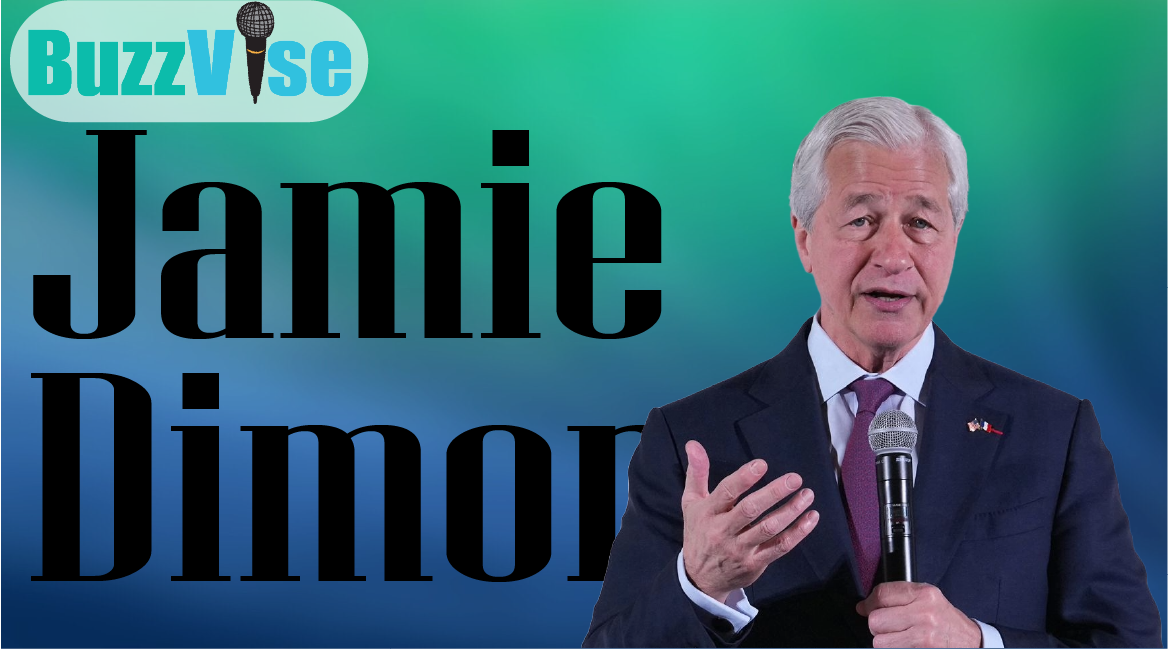A CEO’s Candid Critique Goes Viral
Jamie Dimon, the long-serving CEO of JPMorgan Chase, once again sparked a nationwide conversation in early 2025 after he bluntly criticized remote work habits. His remarks—specifically targeting employee availability on Fridays—have reignited the return-to-office debate across corporate America. Dimon, known for his outspoken leadership style, stated: “Fridays are a joke now,” expressing deep frustration at the decline in productivity and culture due to work-from-home arrangements.
The Moment That Sparked the Debate
Dimon’s comments came during a JPMorgan town hall in Columbus, Ohio. Leaked remarks revealed his dissatisfaction with hybrid schedules and resistance to returning to full-time in-office work. He emphasized his difficulty in reaching employees, particularly on Fridays, saying, “There’s not a goddamn person you can get a hold of.”
| Full Name | Jamie Dimon |
|---|---|
| Date of Birth | March 13, 1956 |
| Age | 69 (as of 2025) |
| Birthplace | New York City, USA |
| Nationality | American |
| Height | 5 ft 11 in (180 cm) |
| Education | Harvard Business School (MBA) |
| Occupation | CEO of JPMorgan Chase |
| Years Active | 1985–present |
| Spouse | Judith Kent |
| Children | 3 daughters |
| Net Worth | Estimated $2 billion (2025) |
| Known For | Corporate leadership, finance |
| Current Residence | New York, USA |
Let me know if you’d like this in HTML or markdown format for easy embedding.
Workplace Culture and Dimon’s Growing Frustration
The JPMorgan executive believes that remote work is weakening the company’s collaborative spirit. He emphasized that mentorship, spontaneous discussions, and creative brainstorming suffer when workers aren’t physically present. Dimon’s core argument: culture cannot be built over Zoom.
This isn’t the first time he’s expressed concerns. Since the onset of the pandemic, he’s consistently voiced skepticism about the long-term sustainability of remote work. The Friday criticism marks a more specific—and increasingly urgent—tone in his campaign.
New Office Mandates at JPMorgan
In early 2025, JPMorgan announced that around 30% of its workforce—mostly in support and back-office roles—would be required to return to the office five days a week starting in March. This marked a significant rollback of the company’s prior hybrid policy.
Dimon stood firm even after employee backlash, which included an internal petition with over 1,800 signatures. While he later acknowledged his language was too harsh, he made it clear he wouldn’t reverse course, reiterating: “You want to work from home? That’s fine. You can work somewhere else.”
Employee Pushback and Changing Expectations
Not all employees were willing to comply quietly. Many voiced their concerns publicly and on social platforms, citing increased productivity, reduced commute stress, and improved mental health when working from home. A younger generation of workers, in particular, values the flexibility remote work offers—and they’re not afraid to demand it.
A TikTok video from a JPMorgan employee went viral as she explained how she gets more done from home than in the office, reinforcing that workers increasingly equate autonomy with efficiency.
Is This About Culture, or Something Else?
Critics of Dimon’s remarks suggest deeper motives may be at play. With JPMorgan’s extensive exposure to commercial real estate—valued around $51 billion—some speculate that the bank’s office mandates are partially driven by economic interests rather than culture alone.
Dimon has denied this, insisting his push is entirely about performance, accountability, and long-term company health. But with hybrid models working successfully for many, it’s become harder to sell the idea that in-office equals better.
Other CEOs Weigh In
Dimon isn’t alone in his stance. Other major CEOs, like Andy Jassy of Amazon and David Solomon of Goldman Sachs, have also demanded more in-office presence. Their concerns often echo Dimon’s—falling innovation, weaker collaboration, and eroding company culture.
Still, many companies, including tech firms and creative agencies, are leaning into hybrid or fully remote models. The divide illustrates a broader cultural clash between traditional corporate management and evolving employee expectations.
The Data Behind the Debate
Surveys in early 2025 showed that nearly 70% of hybrid and remote workers would consider leaving their jobs if forced to return to the office full-time without added compensation. Meanwhile, multiple studies have shown that knowledge-based work can thrive remotely with the right tools and communication protocols.
Dimon’s critics argue that companies should be evaluating productivity outcomes, not office attendance, to determine employee success.
Will JPMorgan’s Policy Backfire?
Whether this hardline return-to-office strategy will benefit JPMorgan remains to be seen. While Dimon’s leadership has guided the bank through financial crises and global disruptions, the cultural shift in how people work may present one of his toughest leadership tests yet.
If employee dissatisfaction leads to higher turnover—especially among younger, skilled professionals—JPMorgan may face talent retention issues in the long term.
A Defining Moment for Corporate America
Jamie Dimon’s statements have placed him at the center of a growing debate that touches every industry: What does the future of work look like?
His comments are a reflection of a broader tension between maintaining traditional business models and adapting to the flexible work culture that employees increasingly demand.
Whether companies choose to follow Dimon’s lead or pivot toward employee-centered flexibility could define corporate strategy for the next decade.
FAQs
Q1. Why did Jamie Dimon say “Fridays are a joke now”?
Jamie Dimon criticized remote work culture for leading to poor availability on Fridays. He claimed employees are often unreachable, undermining productivity and team collaboration.
Q2. What changes did JPMorgan make to its remote work policy in 2025?
JPMorgan mandated a full return to office for most employees by March 2025, ending hybrid schedules for back-office and tech teams.
Q3. How have employees responded to the return-to-office policy?
Many employees, especially younger ones, have pushed back—citing benefits like better focus, flexibility, and work-life balance while working remotely.
Q4. Is Jamie Dimon against all remote work?
Not entirely. Dimon said certain roles like call center positions may remain remote, but he believes core teams must be in-office to maintain culture and efficiency.
Q5. Are other companies following Dimon’s approach?
Some, like Amazon and Goldman Sachs, also favor full office returns. But many businesses continue to embrace hybrid or remote models based on employee preference and performance outcomes.





Leave a Reply